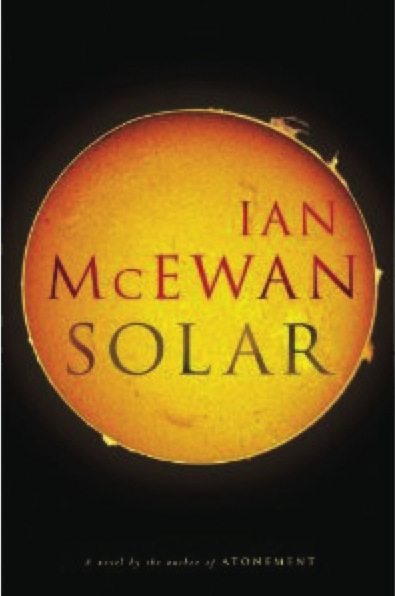The somewhat puzzling new novel by Man Booker Prize-winner Ian McEwan is farce on a grand, even global, scale. It satirizes egotistical scientists, pretentious artists, panicked environmentalists, overly sensitive social constructivists and the uneducated residents of trailer parks, some of whom deserve derision.
The targets are hard for McEwan to miss. The shots come fast and heavy, and while McEwan’s prose still carries a bite, his blows rain down in numbing repetition.
Humor this broad seems odd for someone who won the Booker for the slim, tricky “Amsterdam” (strangely, not his best work). McEwan employs sly wit often enough in his novels but excels when he prods readers to the brink of tragedy and then gives them a good, hard shove: Witness the revelation of the psychological mysteries of “Black Dogs;” the icy shock of truth in the devastating final pages of “Atonement;” the breathless, flight toward catastrophe that opens “Enduring Love,” perhaps one of the best first chapters in contemporary literature.
In “Solar,” though, McEwan plays tragedy for laughs, which would be fine if only the satire didn’t feel so forced and over the top. His protagonist, Michael Beard, is a British Nobel Prize-winning physicist who believes he can rescue the world from environmental disaster (at great personal monetary gain).
Beard is disastrously unself-aware — that device becomes one of the book’s big, if not wholly original, jokes — and despite his first-class brain, he’s rarely curious about others. He is less passionate about his career (his Nobel-winning breakthrough came early) than he is about food, drink and women. He bears more than a fleeting resemblance to ad man John Self, the boozing, drug-addled skirt chaser from Martin Amis’ comic novel “Money.” The main difference — aside from the fact that Self is a great deal more fond of porn than Beard is and that “Money’s” rambunctious excesses aren’t weighted with intellectual and scientific jargon — is that McEwan’s antihero can disguise his desire for fame and glory in the name of scientific achievement.
As the story opens, Beard’s fifth marriage is breaking up — “He had it coming” — and, temporarily bereft, he coasts along at a government-funded institution trying to find solutions to global warming.
Beard doesn’t really think climate change is a problem. When he realizes, however, that he can gain money and fame again by harnessing and controlling solar energy, he sets to work — with another man’s theory. Even though, as he gazes down at sprawling London from a plane window, he thinks: “How could we ever begin to restrain ourselves … We were such a wild success.”
“Solar” can be amusing, as when McEwan introduces Beard to the social constructivist who insists things exist only if we know about them. “Her purpose was to demonstrate that this gene, or any gene, was, in the strongest sense, socially constructed … The gene was not an objective entity, merely waiting to be revealed by scientists. It was entirely manufactured by their hypotheses, their creativity, by their instrumentation, without which it could not be detected.”
One has to appreciate the sheer lunacy of this theory, but other metaphors are too obvious. The book’s premise — the guy who wants to save the world can’t even save himself — isn’t particularly creative. And the irony is doled out in heaping doses too heavy-handed to get beyond.
Send questions/comments to the editors.



Success. Please wait for the page to reload. If the page does not reload within 5 seconds, please refresh the page.
Enter your email and password to access comments.
Hi, to comment on stories you must . This profile is in addition to your subscription and website login.
Already have a commenting profile? .
Invalid username/password.
Please check your email to confirm and complete your registration.
Only subscribers are eligible to post comments. Please subscribe or login first for digital access. Here’s why.
Use the form below to reset your password. When you've submitted your account email, we will send an email with a reset code.